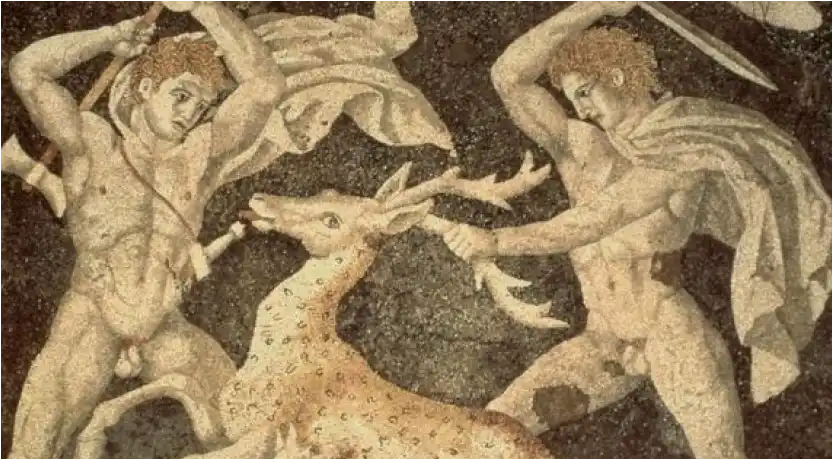While often viewed through the lens of their military conquests, the ancient Macedonians had a rich and vibrant spiritual life. To understand their culture, it is essential to explore how the Macedonians practiced their religion. Their beliefs and rituals were fundamentally part of the broader Greek world, centered on the worship of the Olympian gods. However, Macedonian religion also had unique local characteristics, including the great importance of dynastic cults and the central role of major state-sponsored sanctuaries.
Table of Contents
🏛️ Olympian Gods with a Macedonian Accent
The archaeological and inscriptional evidence is clear: the Macedonians worshipped the same twelve Olympian gods as their southern Greek neighbors. Zeus, the king of the gods, was the principal deity of the state. However, two other gods held a particularly special place in the Macedonian pantheon: Heracles and Dionysus. The Argead royal family claimed direct descent from Heracles, and this heroic lineage was a cornerstone of their royal ideology, frequently appearing on their coinage. Dionysus, the god of wine and ecstatic revelry, was also a figure of immense importance, especially to royal women like Olympias.
Sanctuaries of Dion and Leibethra
The Macedonians expressed their piety through major religious festivals and sanctuaries. The most important religious center in the kingdom was Dion, located at the foot of Mount Olympus, the mythical home of the gods. At Dion, the kings presided over major festivals that were similar to those at Olympia, complete with athletic and dramatic competitions. Another key site was Leibethra, which was considered the mythical birthplace of Orpheus, the legendary musician and poet. These great sanctuaries served as centers of Macedonian religious and cultural life.
👑 The Dynastic Cult and Royal Rituals
A unique feature of Macedonian religion was the importance of the dynastic cult. The king was not just a political and military leader; he was also the chief priest of the kingdom, responsible for performing the sacred rituals that ensured the gods’ favor. There is also evidence for a cult of the dead kings, and this tradition of venerating rulers eventually evolved into the ruler cults of the Hellenistic period, where Alexander the Great and his successors were worshipped as gods themselves. This close link between religion and royal power was a defining characteristic of Macedonian society.
Roisman, Joseph, and Ian Worthington, editors. A Companion to Ancient Macedonia. Wiley-Blackwell, 2010.
More Topics
- Curses: The History of the Evil Eye and Binding Magic
- Magical Plants: A Witch’s Garden of Herbs and Poisons
- Roman Magic: Curses, the Strix, and Everyday Protection
- Circe: The Greek Sorceress of Transformation and Myth
- Greek Magic: Hecate’s Power, Oracles, and Enchantresses
- Japanese Magic: Yōkai, Onmyōdō, and Supernatural Folklore
- Empress Chen Jiao: The Royal Scandal of Witchcraft in Han China

